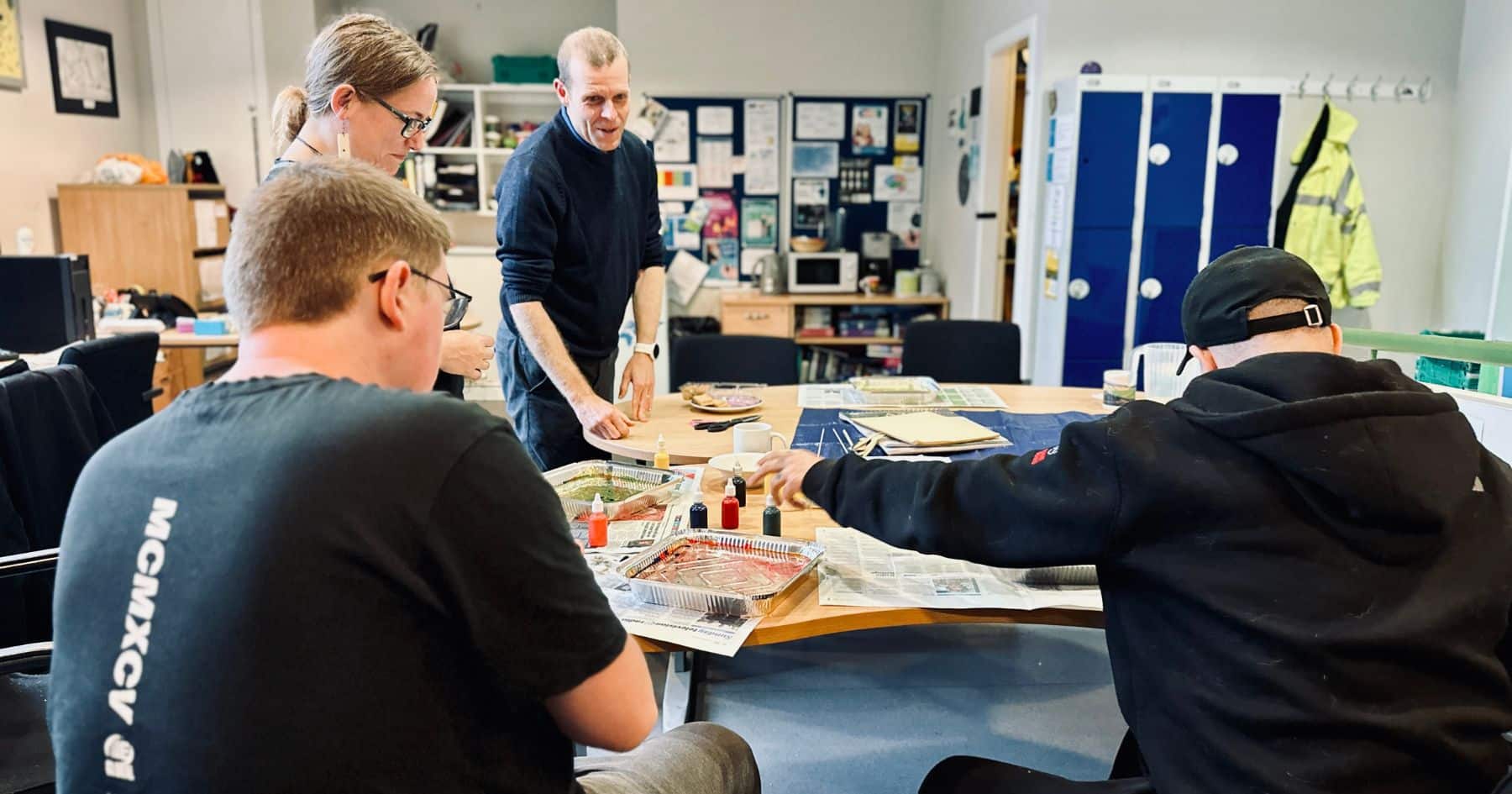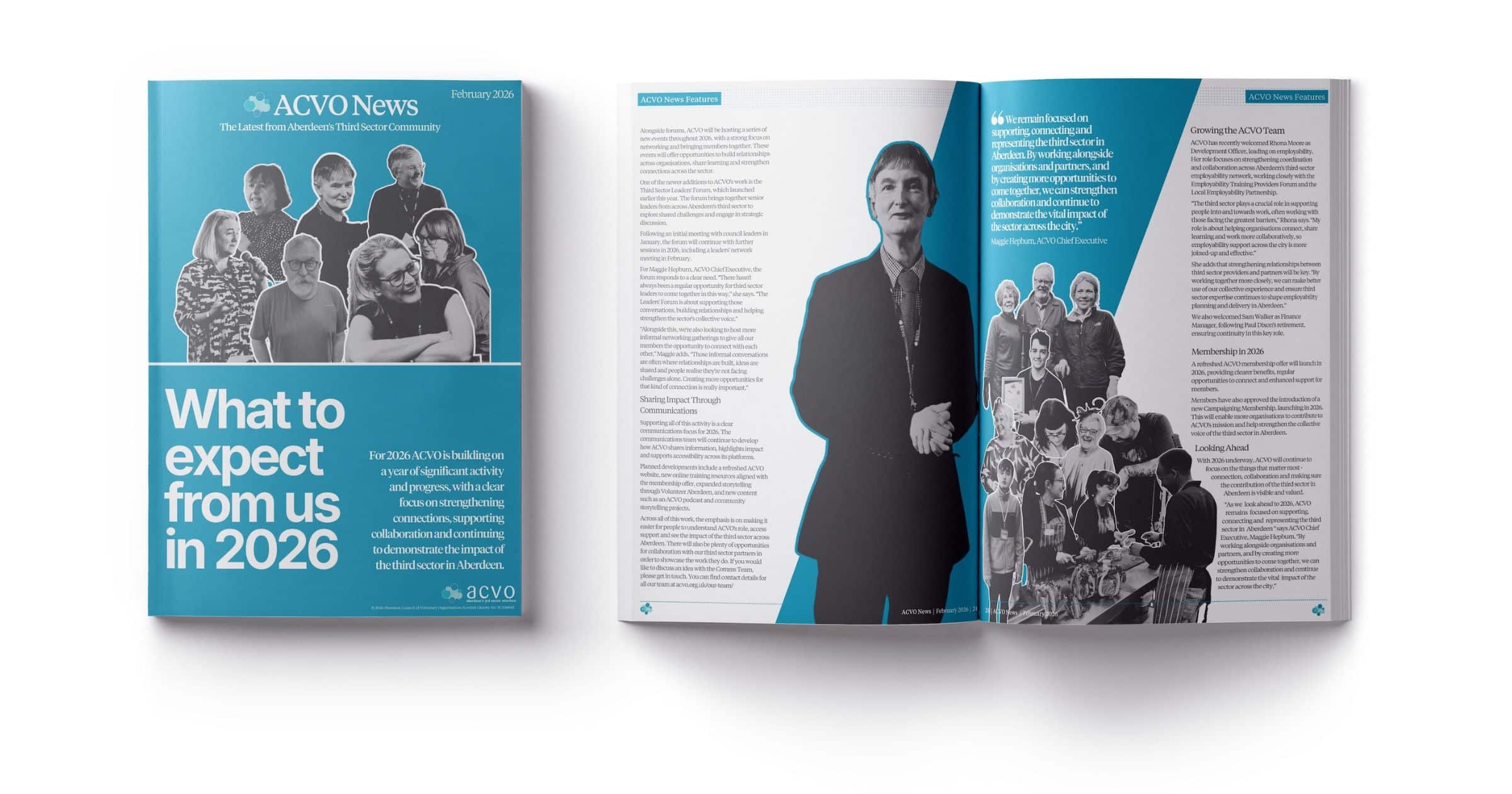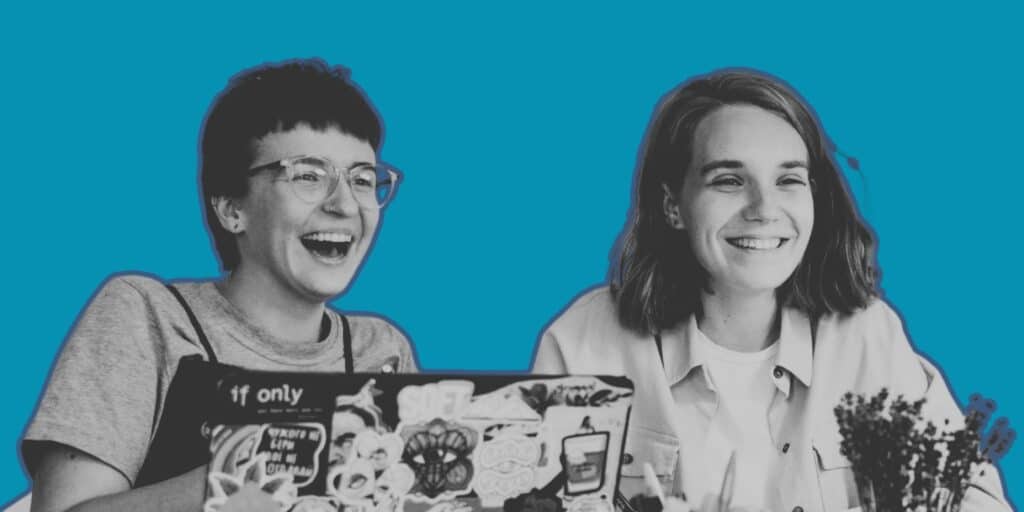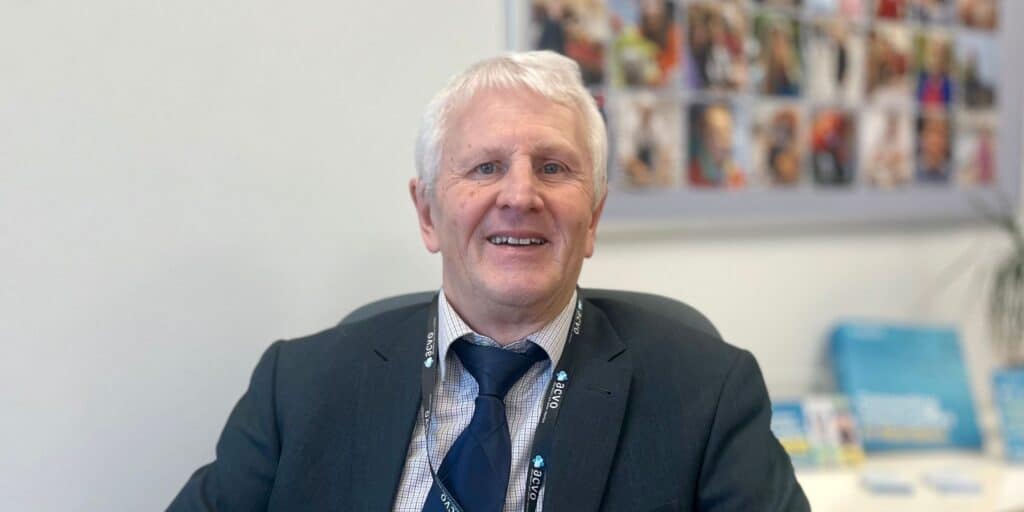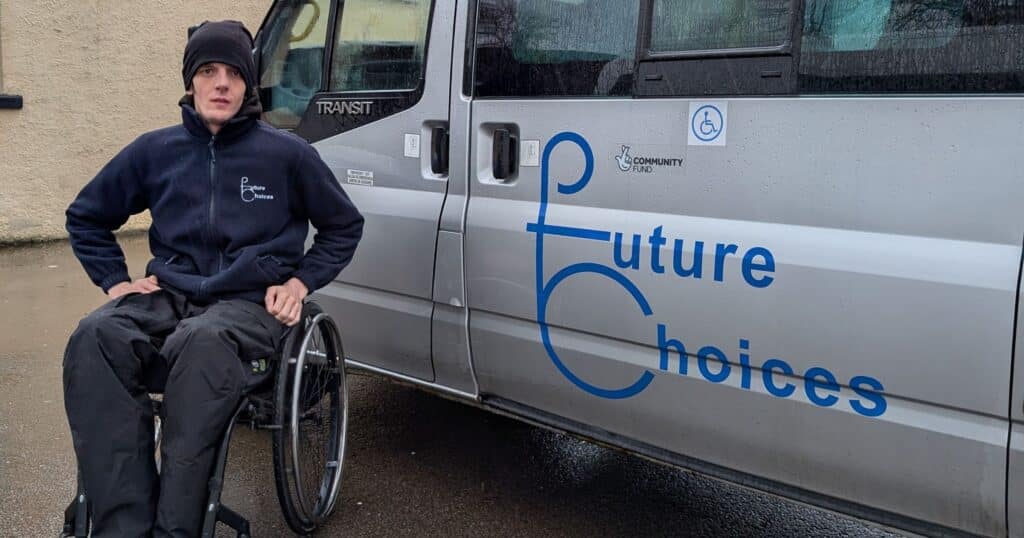For individuals transitioning from prison back into society, the path forward can often feel uncertain, overwhelming and fraught with challenges.
To support people experiencing this, CFINE (Community Food Initiatives North East) launched the HOPE (Happily Optimistic Positively Energised) programme in 2021 for men and women being released from HMP Grampian as they rebuild their lives. The programme was co-designed with input from officers and prisoners and is based on community development principles.
Through a holistic approach combining workshops, creative expression, practical support, and community service, the project offers choices to individuals at a critical juncture. More than just a support system, HOPE provides participants with a renewed sense of purpose, belonging, and personal growth.

A Lifeline Before and After Release
Central to HOPE’s mission is its dual approach: supporting individuals both before and after their release from prison. Angus Carmichael, Justice Development Worker at CFINE, now coordinates the initiative. Reflecting on its formation, Angus shares, “HOPE started three years ago with the aim of preparing people for life after prison and supporting them to reintegrate successfully into the community. The pre-release programme comprises five workshops that cover everything from employability and housing to volunteering opportunities and mental health support. There is a stand-alone session for prisoners on remand. Post-release we build on these themes with a range of activities in Aberdeen.”
These workshops are more than just informational; they aim to equip participants with the knowledge and skills necessary to navigate life on the outside. This pre-release preparation is a vital step in reducing the risk of reoffending by ensuring individuals are aware of the services and resources available to them. Angus notes, “When they get out, they’re equipped. They know what’s out there to support them and where CFINE fits in with services like cooking classes, benefits support, and even volunteering.”
Once individuals are released, HOPE offers a comprehensive suite of services under one roof. The sense of continuity and wraparound care provided by CFINE ensures that participants feel supported, safe, and valued. “Everything they need, from accessing the food pantry to learning new skills, is in the same building,” Angus explains, noting that stability and routine are crucial for the process of reintegration.
Reintegration Through Purpose and Community
Re-entering society after prison can be a daunting experience. Many people struggle with feelings of isolation and the challenge of finding their place in a community that may view them with stigma or judgment. HOPE addresses this by creating a welcoming environment where participants can regain a sense of purpose and belonging.
One anonymous participant, who has been part of the programme for several months, shares how the project has been transformative for him: “If it weren’t for HOPE, I don’t know where I’d be. It keeps me out of trouble, and I’ve learned so much – more than I thought I could.” This sentiment underscores the project’s success in providing participants with the tools for personal growth and development.
For many, the act of giving back is particularly powerful. HOPE encourages participants to engage in community service, whether it’s helping at CFINE, working at local community gardens, or participating in neighbourhood clean-up efforts. Angus explains the significance of this involvement: “It’s about giving them a chance to contribute to, and feel a part of, the community. This gives a sense of belonging and purpose, and boosts self-belief.”
One participant recounts his experience working in the garden: “It felt good to give something back and to see that the work we’re doing is appreciated.” This opportunity to contribute not only builds confidence but also helps shift societal perceptions, allowing individuals to be credited for their contributions and seen as valuable members of their community.


The Therapeutic Power of Creativity
A unique and impactful aspect of HOPE is its emphasis on creativity and self-expression as tools for personal healing and mental health. Artistic activities, which include arts and crafts sessions led by CFINE volunteer Kara Shepherd, offer participants a new way to express their feelings and experiences. Kara, an art enthusiast who came to CFINE through its SAFE team, has seen firsthand how creativity can help participants break through emotional barriers and build social connections.
“We do a range of activities—arts and crafts, field trips to encourage mental health and social skills,” Kara explains. “Creativity lowers cortisol levels and helps participants relax. It gives them a sense of achievement and pride.” This therapeutic approach is invaluable for individuals who have spent time in prison, where stress, isolation, and trauma often negatively impact mental wellbeing.
“It’s about more than just making art,” Kara notes. “It’s about building confidence and realising they can achieve something meaningful. One of our participants gifted his acrylic pour painting made at the session to his mother, which she was overjoyed with. It’s all about helping people achieve these special moments of connection both within and outside of the sessions.”
For many participants, these creative sessions are more than an outlet for self-expression. One participant shares how art has helped him rediscover his sense of identity: “It’s easy to forget how to communicate and express yourself when you’ve been in prison. These sessions help me think, problem-solve, and just feel like myself again.”
Gardening: A Path to Healing & Employment
Another key element of HOPE is gardening, which provides participants with both therapeutic benefits and employability skills. Tullos Community Garden provides an escape for individuals looking for respite from the pressures of reintegration. One participant explains how gardening has offered him a form of mental relief: “It’s just, you know, kind of taking time to let the demons escape… just forgetting about them all.”
Gardening’s ability to calm the mind while also teaching practical skills has proven to be a valuable resource for participants looking to rebuild their lives. As the participant highlights, “Gardening is an employable skill, and it gives me purpose. It also helped me realise that there are local projects that people can get involved with that do make a huge difference.”
“I genuinely hand on heart feel that if more people knew about these projects and played their part, the local community would be a better place. I genuinely believe that.”
This sentiment highlights HOPE’s potential for creating long-term positive change by empowering participants to contribute meaningfully to their community.


Tailored Support and Mentorship
HOPE’s success lies in its ability to offer tailored support, recognising that each participant’s journey is unique. Angus and the CFINE team work closely with individuals to identify their specific needs, whether it’s practical help like writing a CV, finding housing, or simply offering support through mentorship.
A new feature of the programme is the introduction of peer mentors – former participants who have successfully navigated their own challenges and now help guide newcomers through the process. Angus emphasises the value of lived experience: “Having mentors who have been through the same challenges makes a huge difference—it builds trust and creates a safe space for people just coming out of prison.”
One participant, who has recently taken on a mentoring role, speaks of the potential impact of these relationships. He shares how the support he received was life-changing: “If it wasn’t for Angus, well CFINE as a whole, but Angus especially, I wouldn’t be where I am today. I just feel a new man, it’s done so much for me, you know. It was a slow process initially but Angus let me go at my own pace which really worked for me.”
“I feel so much more confident now. There’s a few new things that have come about in the last few weeks, and thinking on where I was at when I first met Angus, I would have never been able to deal with them at that point. But now I not only feel like I can handle anything that comes up myself, I am also able to help others by acting as a mentor.”
“Also, since I don’t have family up here I realise that the support from CFINE has been massively important for me”.
Overcoming Stigma and Barriers
While HOPE offers participants a variety of tools for success, challenges remain, particularly the societal stigma faced by individuals with a criminal record. One participant voices his frustration with the way society views former prisoners: “Once you get kicked out of society, you’re kicked out. They don’t let you back in.” These reflections highlight the psychological barriers participants must overcome, in addition to the practical ones.
However, through initiatives like HOPE, individuals are gradually reclaiming their narratives. By contributing to their community and rebuilding their lives with dignity, they are defying the stereotypes and judgments that once held them back.
A Future Full of Possibilities
As HOPE continues to evolve, the future looks promising. Kara dreams of expanding the programme with new workshops and activities, including woodworking projects and upcycling initiatives. “I’ve got ideas for opening a HOPE shop to sell some of the things we create and raise funds,” she says with enthusiasm.
Angus shares a similarly optimistic vision. “The ultimate goal is for people to engage with the programme, build up their confidence, and eventually not need us anymore. A lot of the guys coming in, they’ve come from very difficult backgrounds with a lot of trauma behind them, and they’ve maybe not had that much kindness in their lives.”
“But we’ll always be here for them, even if it’s just for a cup of tea and a chat.”
For the participants of HOPE, the programme is not just a stepping stone – it’s a lifeline, a community, and, most importantly, a way forward. As they continue to develop and contribute, the possibilities for their future look brighter. Through CFINE’s commitment and the participants’ resilience, the HOPE programme is not only changing lives but transforming communities, one person at a time.
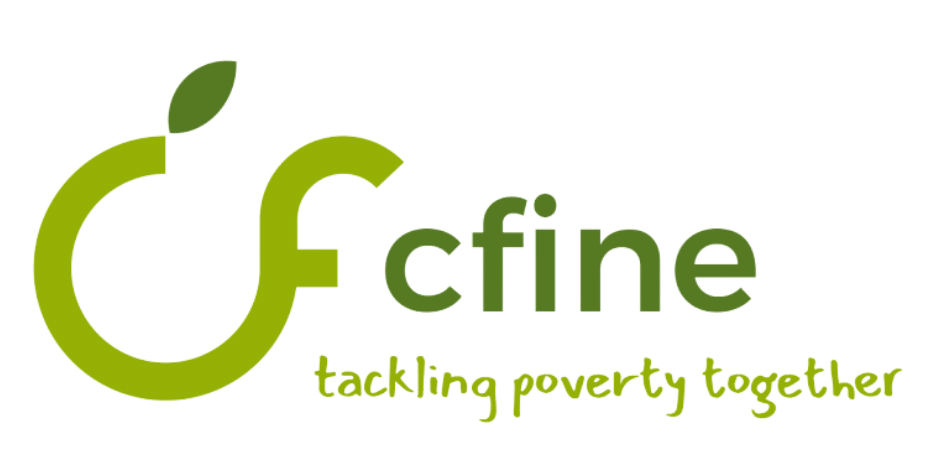
Find out more about CFINE’s HOPE Project at cfine.org

This article originally appeared in the November edition of ACVO News. Read all past editions of the magazine, and subscribe online at acvo.org.uk/acvo-news

